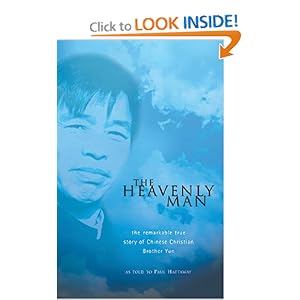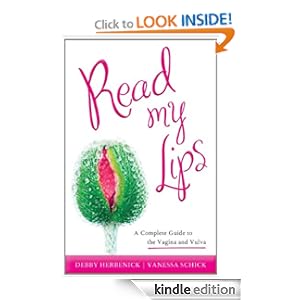
Takeaway: The Christian world outside the US is much more important than what we usually acknowledge
Christian biography and autobiography is an important part of any spiritual growth. Whether you are a reader or not, you need to hear about what others have lived before you. This does not need to be in book form; movies, radio interviews, podcasts, conversations all can be part of the way that we hear from other Christians about their own spiritual lives.
Christian autobiography from non-western Christians is desperately needed to round out a vision of the church that is concerned with more than small bits of theological difference or differences in cultural engagement. Christians around the world right now are being imprisoned for their faith.
I first heard about Brother Yun (as I have about so many good books) from John Armstrong’s blog and I went back and read them as I finished up this book. It has been nearly 4 years since I first heard about the book, but I just recently got round to reading it. I should have read it much earlier.
This is a biography unlike I have read. It is reminiscent of the autobiography of Brother Andrew (the bible smuggler) I first read as a comic book as pre-teen. Brother Yun, starting when he first became a Christian at 16, was fervent in prayer. He prayed and fasted for 100 days to receive a bible (illegal and very rare in the early 1970s in China) and after 100 days a man brought him a bible. He did not just read it, he memorized large passages of scripture. Within months of receiving the bible he was asked to come preach to a nearby village. He went, but did not know what to say, so he just recited the whole book of Matthew and then the parts of Acts that he had started memorizing.
His story proceeds to tell of how he became a preacher in the underground church movement of China and how he was repeatedly imprisoned, tortured and eventually escaped out of China. Brother Yun now lives in Germany with his family and works to support the church in China.
Read more
 Takeaway: The stories of women and their views on women in church leaders, backed by statistical research can be powerful.
Takeaway: The stories of women and their views on women in church leaders, backed by statistical research can be powerful.
 Takeaway: “We have been told our entire lives that we should be leaders…but the truth is that the greatest way to create a movement is to be a follower and to show others how to follow. Following is the most underrated form of leadership in existence.”
Takeaway: “We have been told our entire lives that we should be leaders…but the truth is that the greatest way to create a movement is to be a follower and to show others how to follow. Following is the most underrated form of leadership in existence.” Summary: Girl finds God at Oxford in one of the most beautifully written memoirs written in recent years.
Summary: Girl finds God at Oxford in one of the most beautifully written memoirs written in recent years. Takeaway: We have begun to think that modern capitalism is the only right way to think about economics. This book tracks how economics has been thought of throughout history and calls us to rediscover some of what has been lost.
Takeaway: We have begun to think that modern capitalism is the only right way to think about economics. This book tracks how economics has been thought of throughout history and calls us to rediscover some of what has been lost. Takeaway: Yes, this book is about celebration of women’s genitalia.
Takeaway: Yes, this book is about celebration of women’s genitalia. Takeaway: Theology does not exist in a vacuum.
Takeaway: Theology does not exist in a vacuum.  Takeaway: This might better be called ‘Against a strong version of TULIP’
Takeaway: This might better be called ‘Against a strong version of TULIP’ Takeaway: Biography is not historical fiction.
Takeaway: Biography is not historical fiction. Takeaway: A basic introduction to Luke that is not simplistic or reductionist.
Takeaway: A basic introduction to Luke that is not simplistic or reductionist.